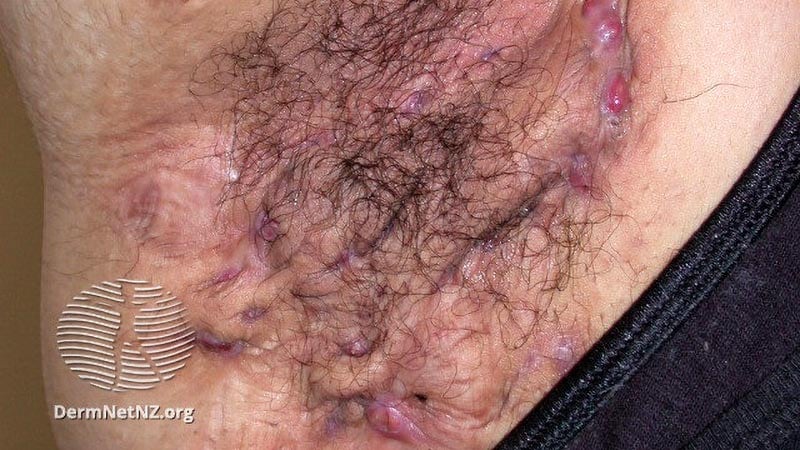[ad_1]
TOPLINE:
Most survey respondents were unaware of US Food and Drug Administration (FDA)-approved treatments for hidradenitis suppurativa (HS), and only 18% were satisfied with their current management.
METHODOLOGY:
- Researchers developed a survey that was distributed via the HSconnect.org listserv between November and December 2023, collecting responses from participants aged ≥ 18 years with HS.
- A total of 501 survey responses (mean participant age, 37.35 years; 91.82% women) were collected, with 423 (84.4%) participants completing the entire 18-question survey. Nearly 60% of the participants were identified as White/Caucasian individuals, while nearly 36% identified as African American or Black individuals.
- The average age of HS onset was 20 years, while the average age of a formal HS diagnosis was 29 years.
TAKEAWAY:
- Only 17.97% of participants were satisfied or very satisfied with their treatment.
- The most commonly used treatments were antimicrobial washes (69.03%), antibiotics (54.85%), and biologics (28.84%). Respondents utilized a mean of 2.36 treatments.
- Many respondents (73.52%) were unaware of FDA-approved therapies, and 55.79% had not discussed these options with their dermatologist or other healthcare provider. The greatest barriers to accessing FDA-approved treatments reported by those surveyed included a lack of awareness about options (48.46%), limited treatment options (43.26%), and high cost (30.97%). Nearly 22% cited a lack of regular access to a dermatologist or other healthcare provider.
- Patients with severe disease (Hurley stage III) were more likely to have discussed FDA-approved treatments (P = .00391), though knowledge and usage did not significantly differ across disease severity levels. While 71.37% expressed confidence in future treatments following the FDA approval of secukinumab for HS in 2023, concerns remained about cost and accessibility.
IN PRACTICE:
“These survey results provide invaluable insight into the high rates of respondent dissatisfaction with current HS treatment options, likely attributed to undertreatment with available therapies and gaps in respondent knowledge,” the authors wrote. Future studies, they recommended, should evaluate “other underlying reasons such as barriers to care, advertising approaches, and utilize enhanced patient-provider communication strategies to address gaps in care, empower patients, and dispel misinformation.”
SOURCE:
This study was led by Andeulazia Murdock, Department of Dermatology, George Washington School of Medicine and Health Sciences, Washington, DC, and published online on March 28 in the Journal of Drugs in Dermatology.
LIMITATIONS:
Limitations included cross-sectional design, potential for sampling and response bias, misinterpretation bias, and possible premature survey distribution.
DISCLOSURES:
The authors reported no conflicts of interest. This study was declared Institutional Review Board (IRB)-exempt by the research ethics committee of The George Washington School of Medicine and Health Sciences IRB-Board.
This article was created using several editorial tools, including AI, as part of the process. Human editors reviewed this content before publication.
[ad_2]
Source link : https://www.medscape.com/viewarticle/many-hidradenitis-suppurativa-unaware-fda-approved-2025a100084t?src=rss
Author :
Publish date : 2025-04-04 10:35:00
Copyright for syndicated content belongs to the linked Source.
